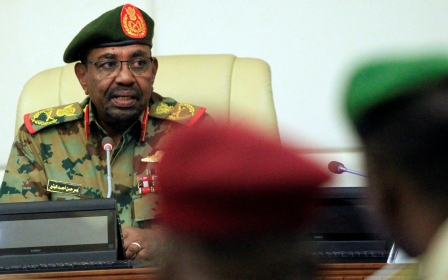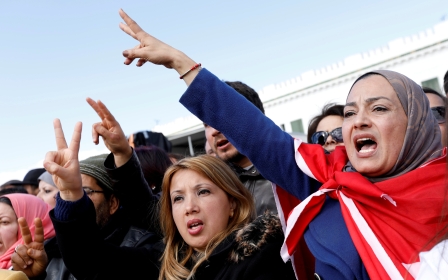Arabic press review: French consultants in Libya allegedly support Haftar

French consultants in Libya to support Haftar
A military source has told online newspaper Arabi21 the French consultants were present near the Libyan capital Tripoli to support retired Major General Khalifa Haftar, who is waging a military campaign to take over the city.
The source said that there was a group of French consultants in the city of Garyan, which is located about 75km away from the capital Tripoli.
The military source, which Arabi21 has not named, asserted that the French were there to provide consultation to Haftar’s forces, which are carrying out a military campaign in the capital.
The source added that the consultants were using drones to assess the situation on the ground.
These moves come despite previous French claims that Paris had not received any prior warning about the advance of Haftar's forces towards Tripoli, and that it was not secretly trying to undermine the peace process in the country.
A week ago, Reuters reported the French government as saying it had "no secret agenda" in Libya.
Al-Qaeda tries to take advantage of IS’s collapse
Al-Qaeda is trying to capitalise on the "ruins" of the Islamic State (IS) by exploiting the media vacuum the group has left following its demise, according to Saudi newspaper Asharq Al-Awsat. IS lost land and and power in both Iraq and Syria, and its most prominent members have fled.
Al-Qaeda has recently launched a new media platform entitled Ummah Wahidah (One Nation) magazine, claiming to be a periodical devoted to Muslim affairs.
An editorial written by Ayman al-Zawahiri called on IS members to renounce the group and to avoid "infighting", quoting words by the founder of al-Qaeda Osama bin Laden.
A study published by Dar al-Ifta in Egypt said that “the magazine is a platform that broadcasts incitement fatwas and publishes death threats”.
However, it managed to reveal “the crisis of internal rivalry inside the organisation and Zawahiri’s fears to be overthrown”.
The launch of the magazine comes amid internal conflicts in al-Qaeda, with several reports indicating attempts to overthrow Zawahiri and install Osama bin Laden's son Hamza bin Laden as the leader of the organisation.
This conflict has spilled over into Yemen, where there have been numerous clashes between different al-Qaeda factions.
US warns citizens against travelling to eight Arab countries
The US Department of State has warned its citizens against travelling to 35 countries around the world, eight of which are Arab countries, over "kidnapping" fears, according to Algerian newspaper Echorouk el-Yawmi, which added that Algeria was one of those countries.
The US Department of State introduced a new risk indicator for travellers abroad so as to clearly communicate with Americans the risks of kidnapping and hostage-taking across the world.
Washington stated that the new "K" indicator, which will be added to State Department travel advice, is part of the ongoing commitment to providing clear and comprehensive travel safety information to US citizens so that they can make sound travel decisions.
The US stressed that it was working to offer specific risk indicators, such as crime, terrorism, social unrest, natural disasters, health and other potential risks.
The new US kidnapping threats list consists of 35 countries, including eight Arab countries, namely Algeria, Iraq, Lebanon, Libya, Somalia, Sudan, Syria and Yemen.
*Arabic press review is a digest of reports that are not independently verified as accurate by Middle East Eye.
Middle East Eye propose une couverture et une analyse indépendantes et incomparables du Moyen-Orient, de l’Afrique du Nord et d’autres régions du monde. Pour en savoir plus sur la reprise de ce contenu et les frais qui s’appliquent, veuillez remplir ce formulaire [en anglais]. Pour en savoir plus sur MEE, cliquez ici [en anglais].




